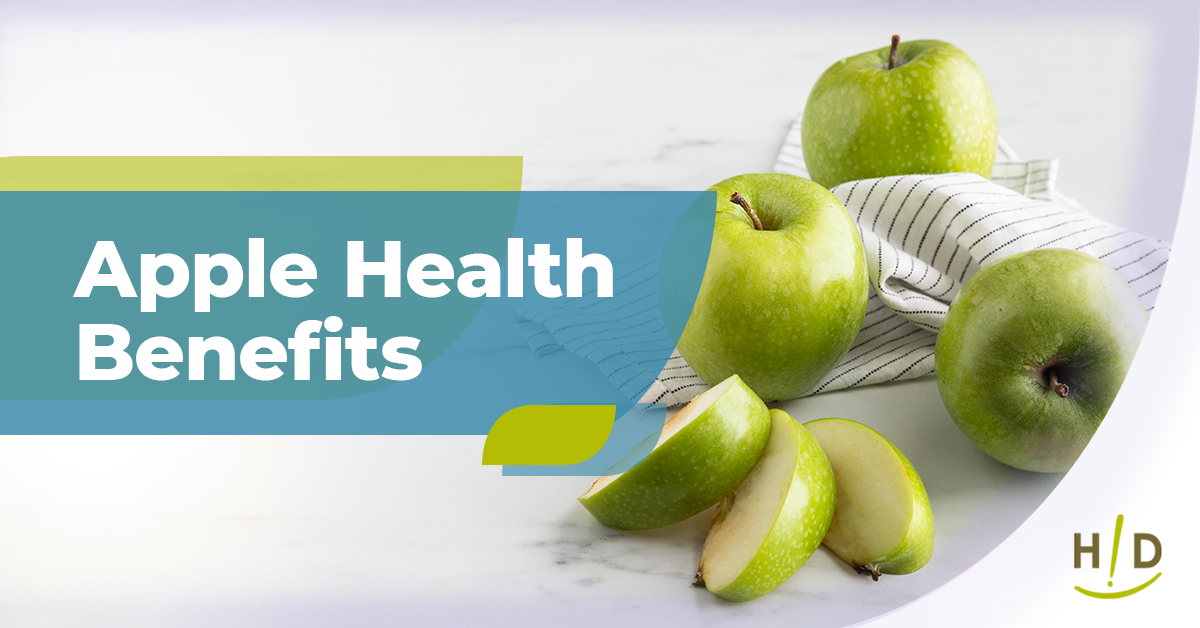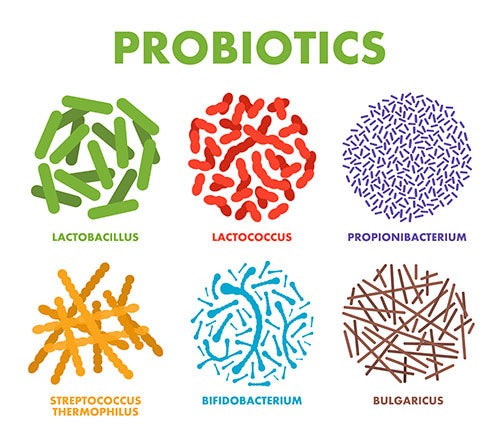Organic apples are one of the most popular fruits. Whether to snack on, to cook with, to add to a meal, or as an additive to health supplements and can be added to a large variety of recipes. You will find apples are an exceptionally healthy fruit with many research-backed health benefits that may surprise you. Grown on the apple tree, (Malus Domestica), apples originated from Central Asia. Here are some of the health benefits of adding apples to your regular diet that you may not know.
Nutrient-Packed
One medium-sized apple with a diameter of roughly 3 inches, equals 1.5 cups of fruit. If on a 2,000-calorie diet, that’s more than half of the 2 cups of fruit daily that is recommended. Apples are high in fiber, vitamin C, and various antioxidants. They are also a very filling snack considering they are also low calorie. Studies have shown that eating apples have a multitude of health benefits. One raw, unpeeled, medium-sized apple has these nutritional values:
- 95 Calories
- 86% of water
- 0.3 grams of protein
- 25 grams carbs
- 10.4 grams of sugar
- 4 grams of fiber
- 0.3 grams of fat
- 14% of the Reference Daily Intake (RDI) of Vitamin C
- 6% potassium of the RDI
- 5% Vitamin K of the RDI
The same serving of apple also includes 2-4% of the RDI for manganese, copper, and vitamins A, E, B1, B2, and B6.
Apples May Be Good to Help Weight Loss
Apples are high in both fiber and water, two qualities that make them filling. In one study (1), it was found that people who ate slices of apple before a meal reported feeling fuller than those who consumed apple sauce, apple juice, or no apple products whatsoever. Within that exact study, scientists discovered those that who started their meal with apple slices ate on average 200 calories fewer than those who did not. In a different 10-week study (2) with 50 overweight women, participants that ate apples lost roughly 2 pounds more and ate fewer calories overall compared to those who ate oat cookies with the same calories and fiber content.
Apples May be Heart-Healthy
In a study called: Apples and Cardiovascular Health—Is the Gut Microbiota a Core Consideration?, researchers believe that consuming apples can be linked to a lower risk of heart disease. (3) This may stem from the fact that apples contain polyphenols, which have a significant number of subcategories including flavonoids. Apples are especially rich in flavonoids, which include the sub-classes, flavonols, flavones, and flavanols. Flavonoids are naturally occurring in many plant foods. Flavonoids are most concentrated within the peels with higher levels found in darker, redder, or bluer colored apples. Apples also contain soluble fiber. Soluble fiber is the type that can help lower blood cholesterol levels. Soluble fiber is a type of fiber that can be dissolved in water, forming a gel-like consistency in the digestive tract. When it comes to your heart’s health, it is foods like apples, with soluble fiber, that are beneficial in lowering your cholesterol. Studies (4) have shown that consuming just 10 to 25 grams of soluble fiber a day can lower cholesterol by 18%.
Apples Linked to a Lower Risk of Diabetes
Several studies have reported that eating apples may lower the risk of type 2 diabetes. (5) In one very large study, eating an apple a day was linked to a 28% lower risk of type 2 diabetes compared to those who did not eat any apples. Even eating a few apples per week instead of every day had a similar protective effect. The polyphenols within apples may help prevent tissue damage to the beta cells in your pancreas. Beta cells are responsible for producing insulin within your body and are often damaged in people with type 2 diabetes.
Other Potential Apple Health Benefits
- In test-tube trials and studies with animals, there is the suggestion that the phytonutrients found in apples can help protect against cancers of the lungs as well as the colon. Potential evidence exists in studies featuring people as well. One such study indicated that people who consumed just 1 apple per day were at a lower risk of cancer, including a 20% to 18% lower risk of colorectal and breast cancers. (6)
- Antioxidant-rich apples may protect lungs from oxidative damage. In a study of more than 68,000 women, it was found that those who ate the most apples had the lowest risk of asthma. Eating roughly 15% of a large apple per day was linked to a 10% lowered risk of asthma. (7)
Apples: Undeniably Good for You
As you can probably guess by now, the health benefits of just adding a single apple a day or a few times a week to your regular diet can be astounding. Raw fruits and vegetables without GMOs, chemicals, fertilizers, and other unsavory practices are still packed with the health-boosting, powerful nutrients our bodies need.
- The effect of fruit in different forms on energy intake and satiety at a meal: https://www.ncbi.nlm.nih.gov/pmc/articles/PMC2664987/
- A low-energy-dense diet adding fruit reduces weight and energy intake in women: https://pubmed.ncbi.nlm.nih.gov/18439712/
- Apples and cardiovascular health—is the gut microbiota a core consideration? https://pubmed.ncbi.nlm.nih.gov/26016654/
- Beneficial Effect of Higher Dietary Fiber Intake on Plasma HDL-C and TC/HDL-C Ratio: https://www.mdpi.com/1660-4601/12/5/4726
- Fruit consumption and risk of type 2 diabetes: results from three prospective longitudinal cohort studies: https://pubmed.ncbi.nlm.nih.gov/23990623/
- Does an apple a day keep the oncologist away? https://pubmed.ncbi.nlm.nih.gov/16091428/
- A Comprehensive Review of Apples and Apple Components and Their Relationship to Human Health: https://www.ncbi.nlm.nih.gov/pmc/articles/PMC3183591/






